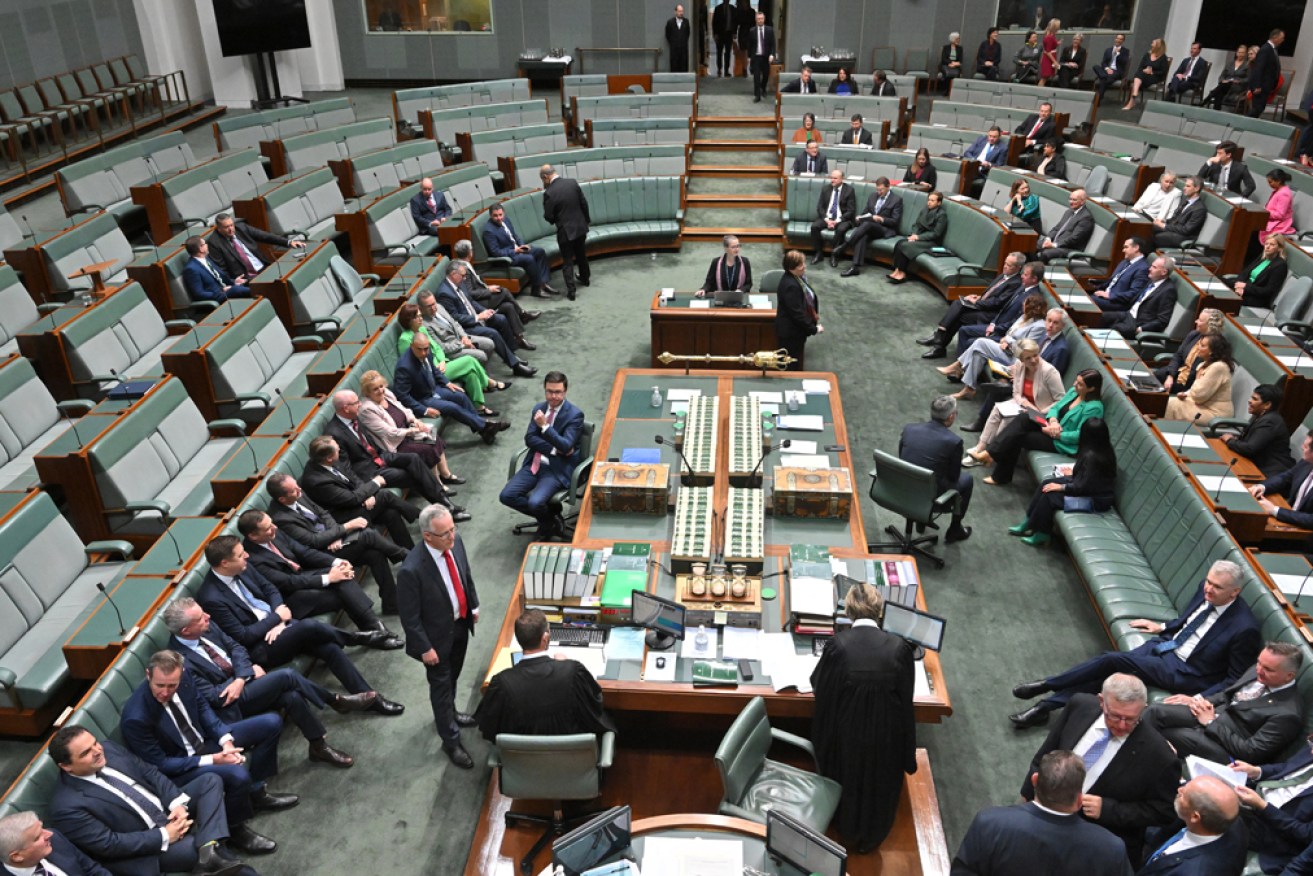Politicians pocket second-highest pay rise of the decade


Federal politicians will get a pay rise from July 1. Photo: AAP
Australian federal politicians, including Prime Minister Anthony Albanese, have been granted the second-largest pay rise of the past decade.
Members of federal Parliament will earn 3.5 per cent more from July 1, equating to thousands of extra dollars in their pay packets.
The rise will bring the base salary for an MP to $233,650, up an extra $8000 from $227,750.
Albanese will receive a base salary of roughly $607,500 – an increase of $21,000.
Opposition Leader Peter Dutton will earn an extra $15,000, with a new $432,250 salary.
The decision was handed down by the independent Remuneration Tribunal.
It comes on top of a 4 per cent pay rise delivered in September 2023.
Before that, federal politicians received 2.75 per cent more in 2022, and had no pay increase in the pandemic years of 2020 and 2021.
In the period from 2015 to 2021, the highest annual rise was 2 per cent.
The Remuneration Tribunal issued a statement about its decision, for which it considered the Fair Work Commission’s annual review.
Earlier this month, the FWC handed a 3.75 per cent rise to the nation’s lowest-paid workers – a lift of about $33 a week in their wages from July 1.
“It takes these outcomes along with a wide range of other factors into its decision,” the tribunal said.
“The tribunal also considered the federal government’s budget outlook as part of its deliberations, and considered economic conditions more generally.
“Remuneration data in general reflects a continued period of increasing wage growth across the economy, with the annual rate of growth rising each quarter since December 2020 to December 2023.”
The tribunal said politicians’ pay rises in the past decade had been “modest”.
“Including the current decision, the cumulative total of remuneration increases awarded by the tribunal since 2015 amounts to 18.25,” it said.
“In contrast, remuneration increases more generally in the public
and private sectors (based on overall March wage-price index data from 2015-2024) have equated to 24.4 per cent.”
The tribunal said its primary focus was to provide “competitive and equitable” remuneration, appropriate to the roles.
“Many of these office holders do not expect or require that monetary compensation for their roles in the public sector be set at private-sector levels,” it said.
“Rather, office holders serve for the public good and the opportunity to influence economic and social policy initiatives.”








